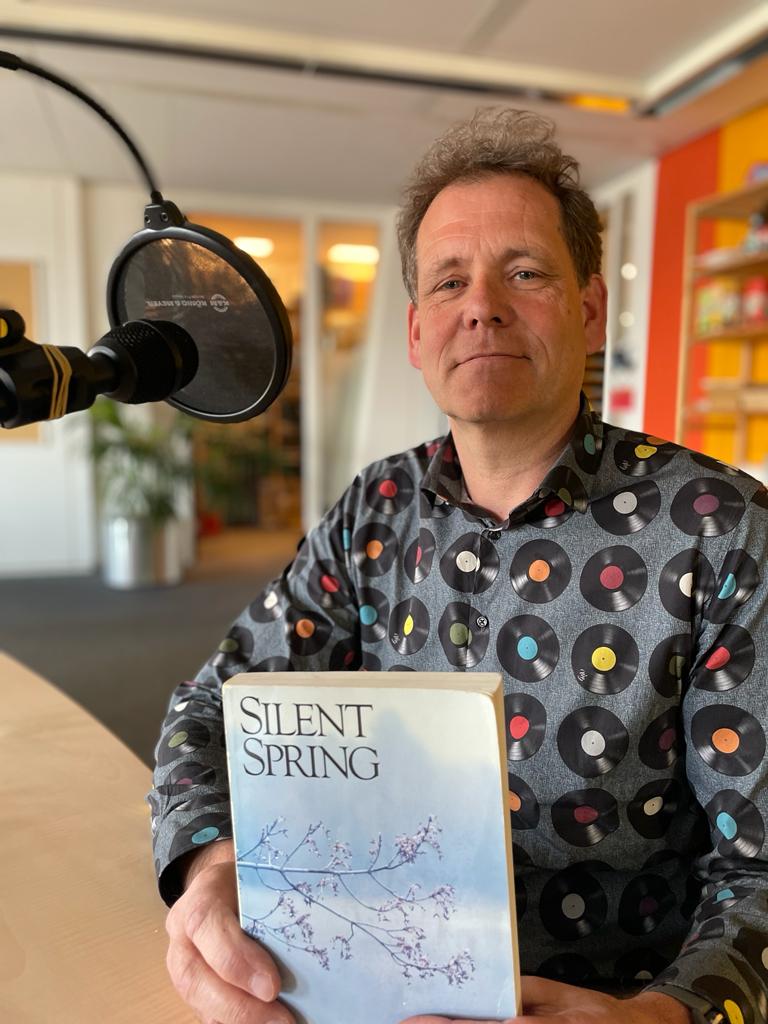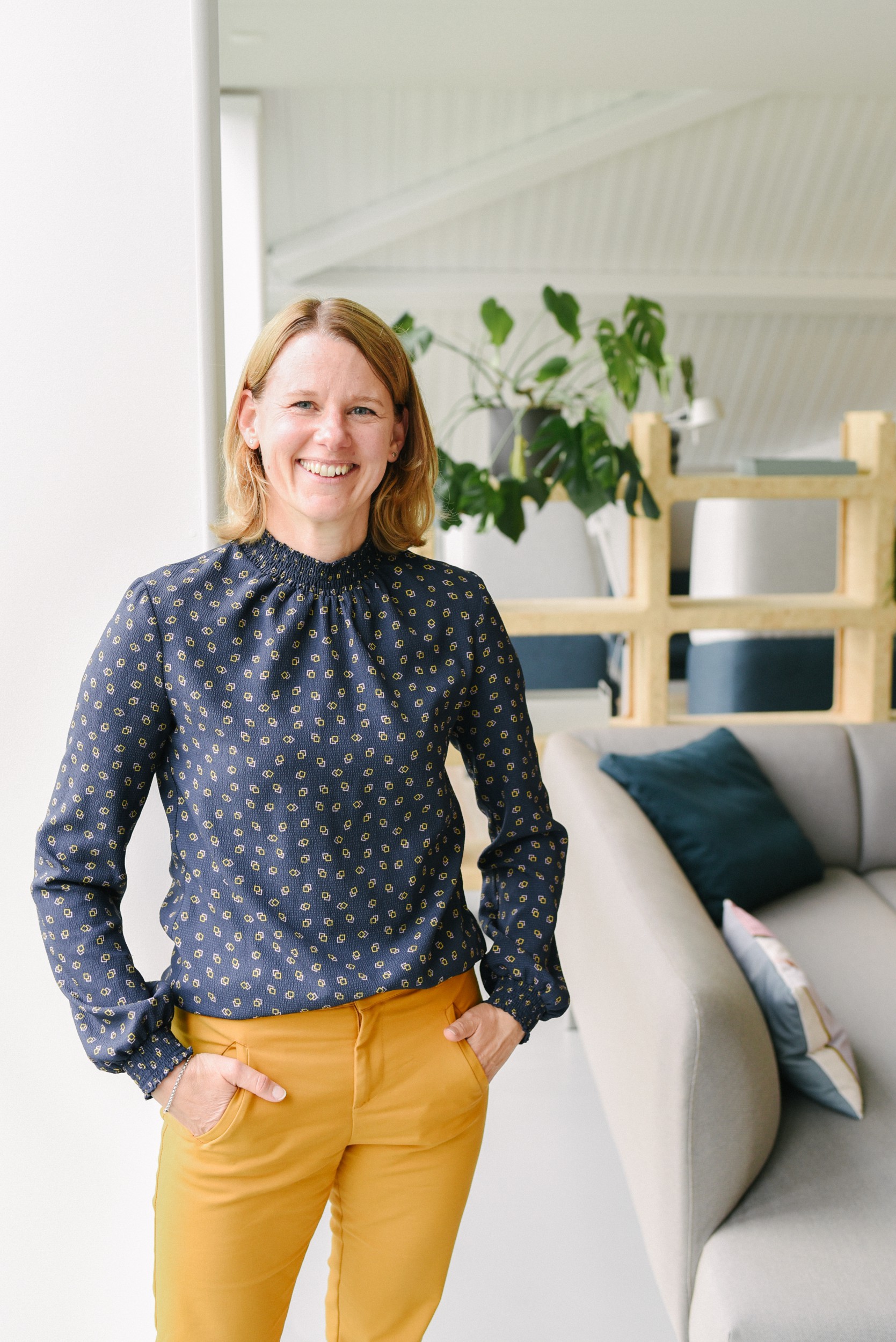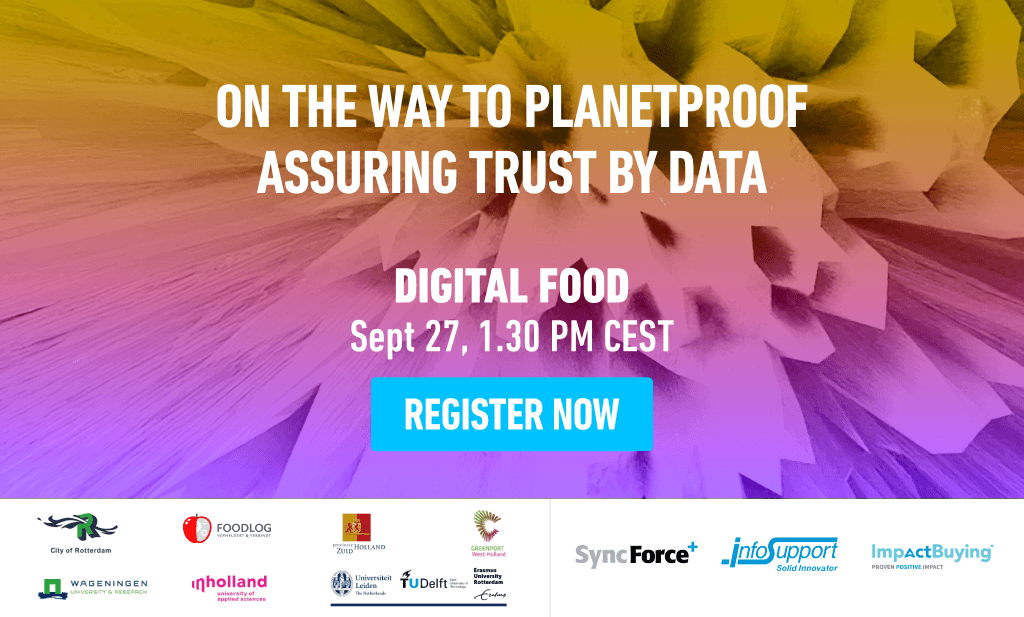Join us on Tuesday, 27 September, from 1:30 PM till 2:15 PM (CET) + 45 more minutes of informality (if you care to stay on) for the fifth use case in our Digital Food series. Registration is no longer possible.
Certification, True Pricing and Key Performance Indicators (KPIs) claim to lead the way to a more sustainable and circular agriculture. But how can you be sure labels and KPIs really help to realize a better climate, more biodiversity and a cleaner and more healthy environment? Who sets the goals and decides when they are being met?
We all want a sustainable agriculture that produces food with a minimal environmental impact on its environment. Certified standards such as On the way to PlanetProof stimulate sustainably produced food by creating a price premium and a preference amongst customers.
What do you measure?
Anyone can issue a certification mark based on a number of criteria farmers need to comply with and ticking the box. Standard setters rarely check whether the criteria actually impacts environmental goals. They easily result in greenwashing. Sustainable palm oil standards claims to protect and improve biodiversity. However, even the most recent criteria don't require the monitoring of actual biodiversity, as they are means instead of goals based.
Peter Leendertse, senior advisor and deputy director at CLM Research and Advisory (Culemborg, the Netherlands) helped to create the ‘On the way to PlanetProof’ label.
He will demonstrate how labels can assure proof for customers. He will discuss the role drones and sensors can play in a dynamic system monitoring actual goals.
Erna van der Wal, Head of Quality Assurance & Corporate Responsibility Aldi Nord in the Netherlands, will show the steps ALDI has taken to become more sustainable in fruits, vegetables and dairy by implementing PlanetProof. She will present an Aldi use case.
We all want a sustainable agriculture that produces food with a minimal environmental impact on its environment. Certified standards such as On the way to PlanetProof stimulate sustainably produced food by creating a price premium and a preference amongst customers.
What do you measure?
Anyone can issue a certification mark based on a number of criteria farmers need to comply with and ticking the box. Standard setters rarely check whether the criteria actually impacts environmental goals. They easily result in greenwashing. Sustainable palm oil standards claims to protect and improve biodiversity. However, even the most recent criteria don't require the monitoring of actual biodiversity, as they are means instead of goals based.
Peter Leendertse, senior advisor and deputy director at CLM Research and Advisory (Culemborg, the Netherlands) helped to create the ‘On the way to PlanetProof’ label.
He will demonstrate how labels can assure proof for customers. He will discuss the role drones and sensors can play in a dynamic system monitoring actual goals.
Erna van der Wal, Head of Quality Assurance & Corporate Responsibility Aldi Nord in the Netherlands, will show the steps ALDI has taken to become more sustainable in fruits, vegetables and dairy by implementing PlanetProof. She will present an Aldi use case.
Speaker: Peter Leendertse (CLM) and Erna van der Wal (ALDI)
 Peter Leendertse (CLM)
Peter Leendertse (CLM)
Peter Leendertse (CLM) is an ecotoxicologist and the son of a farmer. He has extensive experience in the environmental impact of pesticides and strategies to reduce it. Peter's main focus has been on sustainable plant production and healthy food. More specifically: reducing the impact of pesticides, introducing sustainable labels for retail, and combating water pollution by implementing practical measures for farmers. An important part of his work is to guide complex processes, e.g. collaboration between farmers, NGO's and supermarkets.
 Erna van der Wal (ALDI)
Erna van der Wal (ALDI)
Erna van der Wal (ALDI in the Netherlands) is a Wageningen trained expert. She works on improving quality and sustainability of the assortment. That means constantly making choices from different angles, such as sustainability ambitions, commercial propositions, feasibility in the store operation and explainability to the customer. Bringing these interests together is what excites her. The same applies to working together within food chains and looking for ways to make things better for everyone. Before joining ALDI she worked for a large fruit and vegetable supplier. She started out her professional career at CLM, translating research in the field of agriculture into practical solutions and policy, for both governments and food companies.
 Peter Leendertse (CLM)
Peter Leendertse (CLM)Peter Leendertse (CLM) is an ecotoxicologist and the son of a farmer. He has extensive experience in the environmental impact of pesticides and strategies to reduce it. Peter's main focus has been on sustainable plant production and healthy food. More specifically: reducing the impact of pesticides, introducing sustainable labels for retail, and combating water pollution by implementing practical measures for farmers. An important part of his work is to guide complex processes, e.g. collaboration between farmers, NGO's and supermarkets.
 Erna van der Wal (ALDI)
Erna van der Wal (ALDI)Erna van der Wal (ALDI in the Netherlands) is a Wageningen trained expert. She works on improving quality and sustainability of the assortment. That means constantly making choices from different angles, such as sustainability ambitions, commercial propositions, feasibility in the store operation and explainability to the customer. Bringing these interests together is what excites her. The same applies to working together within food chains and looking for ways to make things better for everyone. Before joining ALDI she worked for a large fruit and vegetable supplier. She started out her professional career at CLM, translating research in the field of agriculture into practical solutions and policy, for both governments and food companies.
Related



